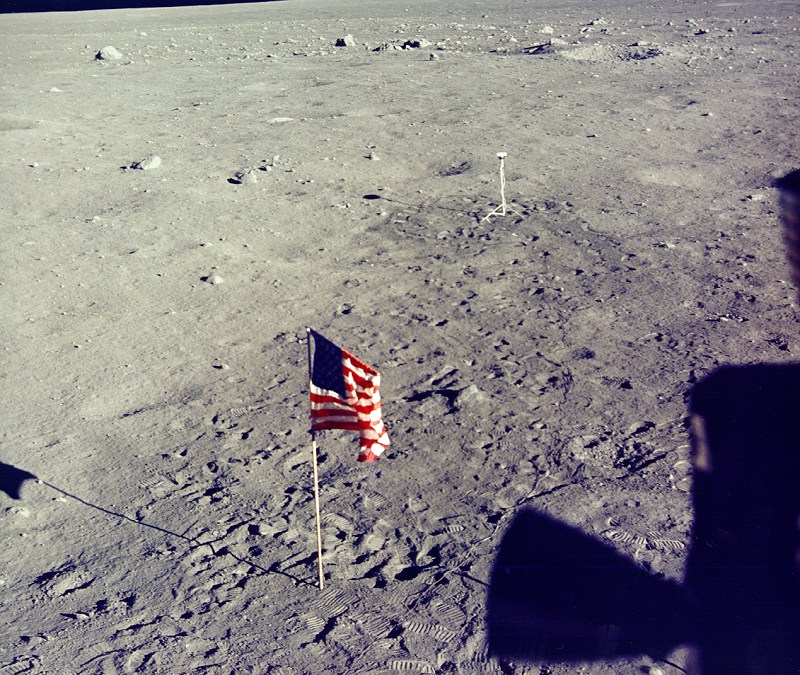A couple of days ago, I walked into a local bookstore near my home and saw a display of books, including astronaut Buzz Aldrin’s new memoir, about the U.S. space program and the first manned landing on the moon. Above it was a large sign in caps: “FOR HISTORY BUFFS.”
I watched the first moon landing at a bar in Paducah, Kentucky, a fact worth mentioning only because I still remember how suddenly silence descended on this raucous place when Neil Armstrong started coming down that ladder. No one spoke, no one moved, people hardly breathed, and nobody ordered a drink or a beer for a long time. In the midst of the horror that was the Vietnam War, here was an event that could inspire some pride in my country again.
I was already writing science fiction, had sold a couple of stories by then, encouraged and pushed into sending them out by my companion and fellow writer George Zebrowski, but they had not yet been published. We had hoped to watch the moon landing together, but George was working in New York City and I was in Kentucky sitting in a bar because my grandparents were celebrating their fiftieth wedding anniversary, and a number of relatives had traveled there to help them celebrate. They had lived long enough to see the history of human-powered flight from the Wright brothers on, and fortunately had another two decades of life ahead of them. My grandfather allowed as how I might even live long enough to see a Mars landing.
I haven’t, of course, except in fiction, including my own, and strongly doubt that I ever will.
Over the years, I have increasingly felt that the world I live in has somehow diverged from the continuum that I lived in then, the one that was to become the spacefaring energy-rich future so many of us foresaw. I’m obviously not alone in this feeling, as something like that mixture of regret and disappointment seems to have fueled the writing of alternative histories, including a few of my own. Humankind’s hopes these days are more limited and more desperate, confined to hoping that we can save our own planet from an ecological catastrophe. Science fiction writers had been imagining that possibility, too, for a number of years before 1969, but such disasters seemed distant back then, a lot further away and more improbable than moon bases, space stations, and a mission to Mars.
Back then, I was unable to predict that I would live long enough to see the dream of traveling to other planets become, not a dreamed-of future realized, but only another part of our past.
Pamela Sargent is a science fiction author, most notably for the popular Venus series. She has also edited numerous collections celebrating science fiction written by women. Her novellette “Danny Goes to Mars” was the winner of the 1992 Nebula Award for Best Novellette.










